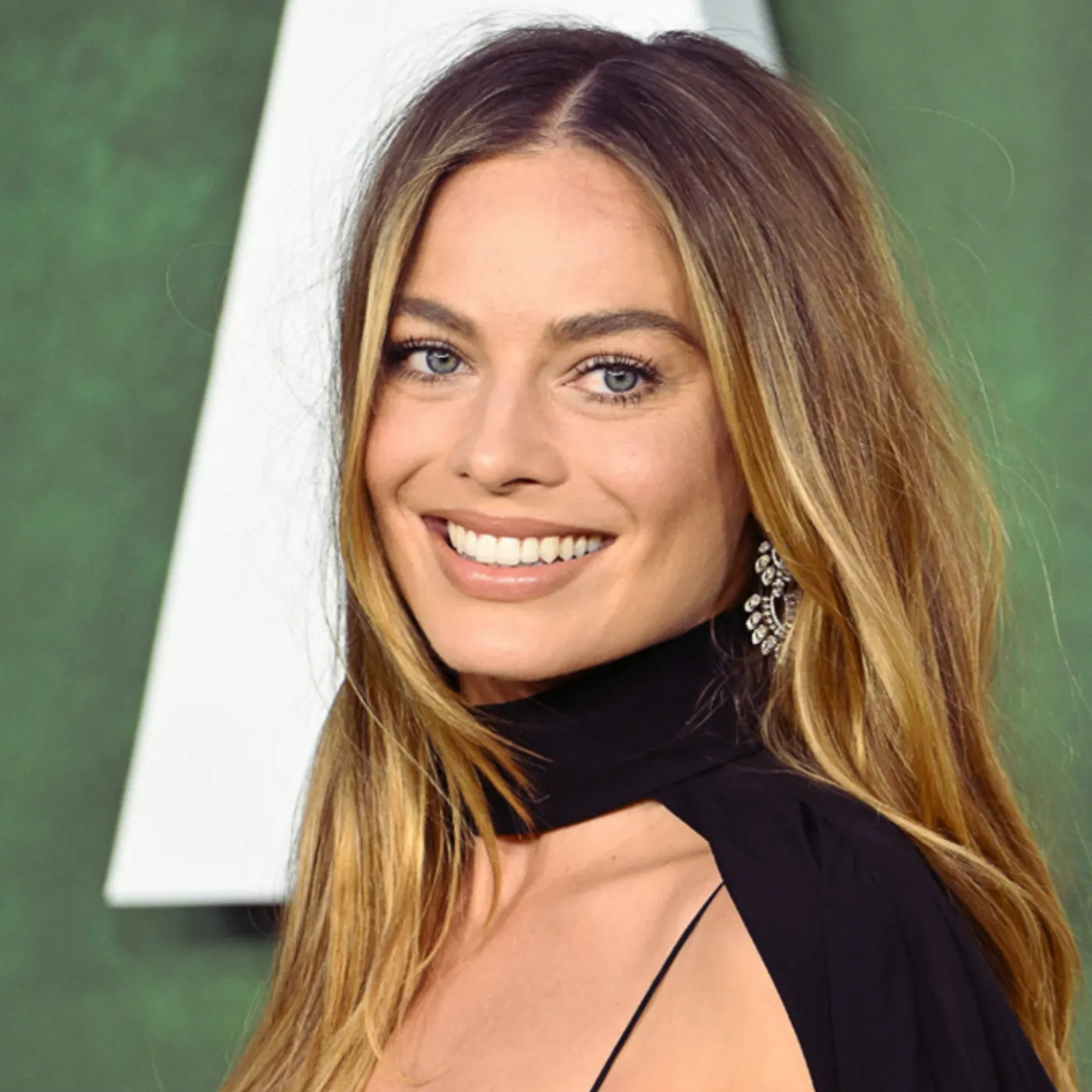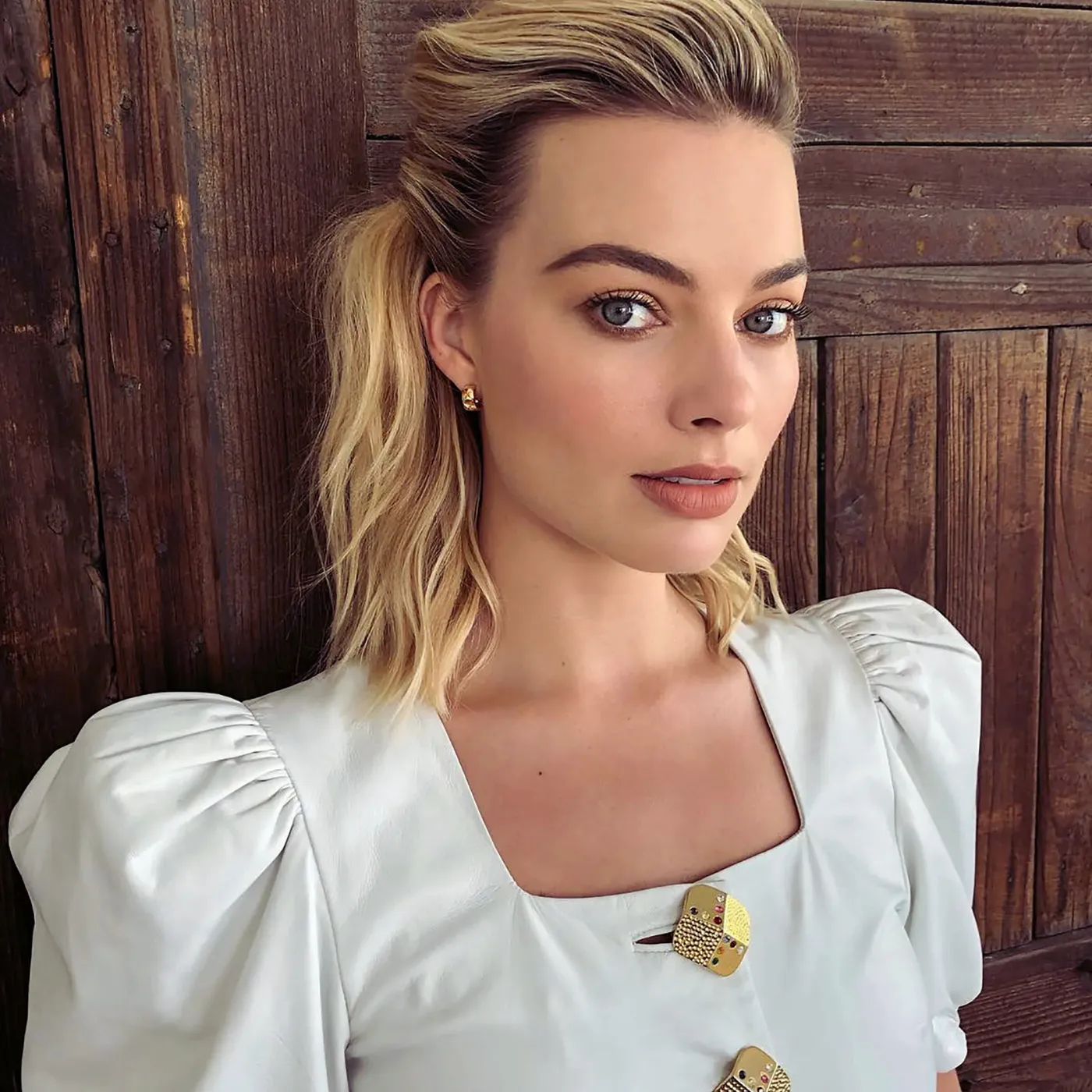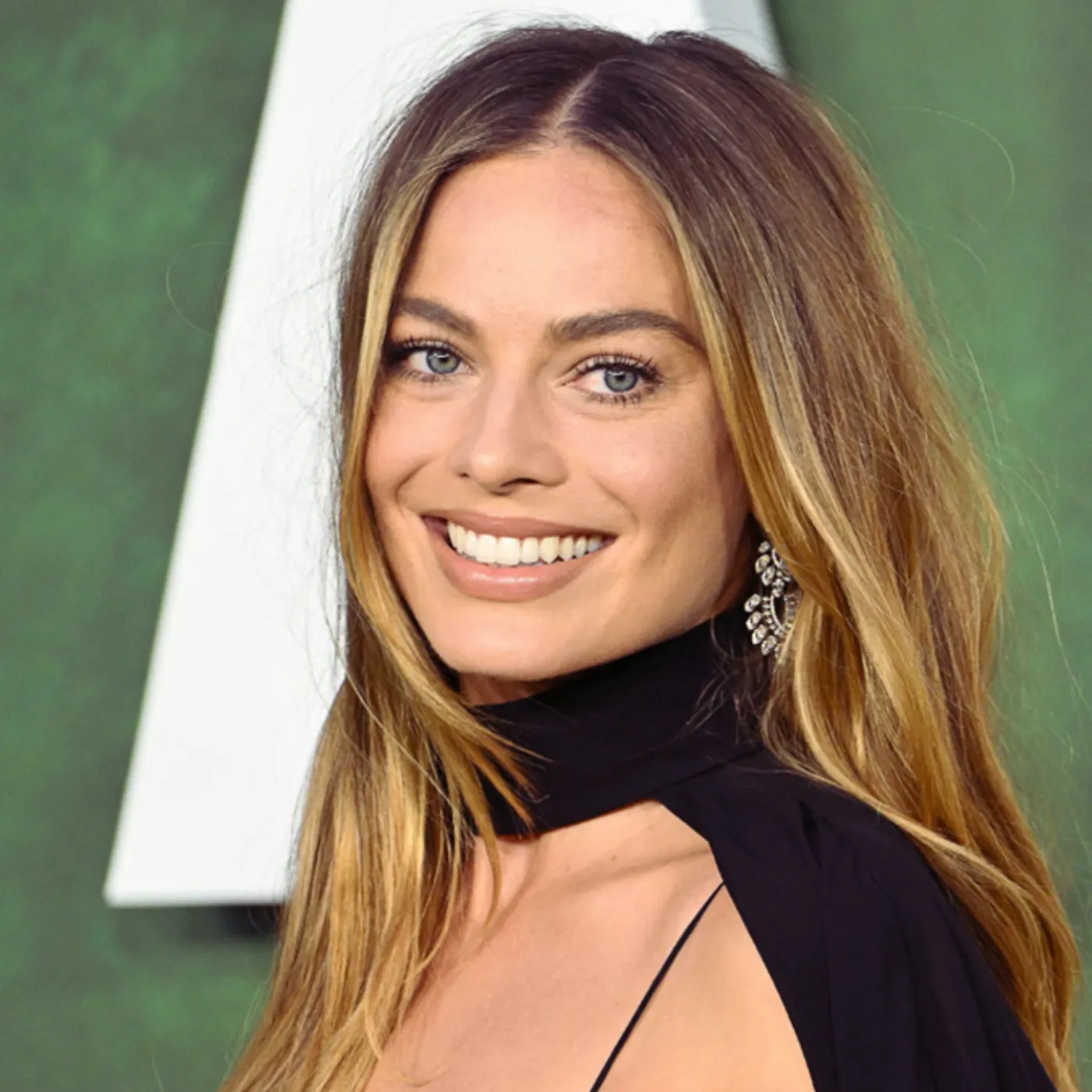

Margot Robbie’s Weird Obsession With Johnny Depp’s Forgotten Musical Will Blow Your Mind
Hollywood’s golden girl Margot Robbie has always been known for her versatile roles, iconic red carpet looks, and effortless charm. But in a revelation that no one saw coming, the Barbie and Babylon star just confessed to a long-standing obsession that has fans scratching their heads: a deep, borderline fanatic admiration for Johnny Depp’s 1989 cult musical, ‘Cry-Baby.’

That’s right. The same gritty, offbeat, campy musical that once made critics scoff but later gained a devoted underground following is apparently Margot Robbie’s comfort film—and she’s not shy about it.
“I grew up watching it constantly. I thought Johnny was the coolest guy alive,” Margot admitted in a recent interview that’s now gone viral across fan forums and celebrity news feeds.
So, what is it about ‘Cry-Baby’—a quirky, over-the-top musical parodying the 1950s greaser culture—that has Margot Robbie so enchanted? And why is this decades-old film suddenly shooting back into pop culture relevance thanks to her unfiltered love for it? Let’s break down the unexpected connection that’s got everyone talking.
A Johnny Depp Role No One Expected Robbie to Love
For younger fans who only know Johnny Depp from Pirates of the Caribbean or Fantastic Beasts, ‘Cry-Baby’ might feel like ancient history. But for Robbie, it’s a cinematic cornerstone.
‘Cry-Baby,’ directed by cult filmmaker John Waters, featured Depp as Wade “Cry-Baby” Walker, a misunderstood bad boy with a single tear permanently trembling in his eye, surrounded by greasers and wild musical numbers. The film, an exaggerated tribute to 1950s teen culture, flopped commercially upon release but became a cult classic over the years.
Now, it’s being reintroduced to Gen Z and Millennial viewers not because of a reboot, but because Margot Robbie says she’s “still obsessed with it.”
“It’s just so fun. So unapologetically weird. That kind of fearless storytelling—it stuck with me.”
Margot’s open admiration has reignited fan interest, triggering waves of TikToks, memes, and retro film reviews dissecting why this obscure film meant so much to her—and possibly why it still matters now.
Why ‘Cry-Baby’ Feels So Robbie
It turns out Obbie’s obsession isn’t that random after all. In many ways, ‘Cry-Baby’ embodies the kind of storytelling that Robbie gravitates toward—stylized, controversial, and bold. Just look at her filmography: from the candy-colored chaos of Suicide Squad to the dark satire of Babylon.
Fans are now seeing parallels between Depp’s Wade Walker and Robbie’s more off-kilter roles, especially Harley Quinn. Both are exaggerated versions of rebellion, wrapped in glamour and irony. Robbie even hinted that her own performance choices have been subconsciously shaped by the exaggerated camp and fearless tone of Waters’ musical.

“I think ‘Cry-Baby’ gave me permission to be loud, messy, and dramatic. It doesn’t care if you get it or not. It’s pure freedom.”
The idea that a fringe musical from 1989 could serve as creative fuel for one of Hollywood’s most in-demand actresses is exactly the kind of unexpected twist that gets the internet buzzing.
Fans React: “Wait—Cry-Baby? Seriously?”
Unsurprisingly, Margot’s comments sparked mixed reactions online. Some longtime fans of the film felt vindicated—finally, someone from the A-list admitting that ‘Cry-Baby’ was ahead of its time. Others were simply stunned.
“I didn’t even know Johnny Depp sang in that movie!” one user posted.
“Margot Robbie having this obsession makes her 1000x cooler,” another fan tweeted.
Film critics, meanwhile, are using the moment to re-evaluate Cry-Baby‘s cultural weight. Once dismissed as a throwaway oddity, the film now appears to be a key influence on today’s camp-friendly, ironic aesthetic that’s dominating everything from fashion to TikTok edits.
Could ‘Cry-Baby’ Make a Comeback?
Thanks to Margot Robbie’s viral confession, studios and streaming platforms are reportedly seeing a spike in interest around vintage Depp films, especially the John Waters catalog. There are even unconfirmed whispers of a limited re-release or retrospective screening event for Cry-Baby in major cities.
Some fans are even pushing for Robbie to produce or star in a remake, though others say the original’s messy brilliance should stay untouched.
“It’s a product of its time—but maybe that’s the magic of it,” one Reddit user argued.
Still, with Robbie’s production company LuckyChap backing bold, genre-defying stories like Promising Young Woman, a reinvention of Cry-Baby doesn’t feel entirely impossible.
Margot Robbie: Hollywood’s New Queen of Cult Fandom?
Margot Robbie has never been one to follow the Hollywood playbook. Over the years, she’s stunned fans by revealing her offbeat interests—from quoting obscure anime gems to naming Quentin Tarantino as an “aesthetic mentor.” But now, her unabashed love for Johnny Depp’s chaotic 1989 musical Cry-Baby might be her boldest and most rebellious move yet.
In an era when most stars stick to safe, sanitized public images, Robbie’s fearless embrace of weird, nostalgic, and downright quirky culture is carving out a unique space for her. It’s this raw honesty and willingness to flaunt her genuine passions that’s making her resonate on a deeper level with fans. No longer just a glamorous Hollywood icon, Margot Robbie is emerging as a symbol of authentic fandom—the kind that unapologetically digs deep into cult classics and forgotten treasures.
As one devoted fan perfectly summed it up on social media, “Margot Robbie being obsessed with Cry-Baby makes me feel less insane about watching it 40 times in college.”
Robbie’s open obsession is more than just a quirky anecdote; it’s a cultural moment. In a world of endless reboots and formulaic blockbusters, her affection for a wildly misunderstood film that originally flopped stands out as a rebellious celebration of art that dares to be different.

Final Thoughts
Hollywood today tends to reward risk aversion and market-tested hits. So, when a star of Margot Robbie’s caliber openly champions a decades-old musical dismissed by critics and audiences alike, it feels refreshingly defiant. Cry-Baby isn’t just a throwback—it’s a statement about the power of artistic freedom, vintage charm, and unapologetic taste.
And just like Robbie herself, the film’s offbeat energy and cult status challenge the norm and invite fans to look beyond the surface. If Margot’s obsession can shine a new spotlight on Cry-Baby, reminding us all why strange, daring stories matter, then let the tears, laughs, and wild rides continue. Because in 2025, being different isn’t just cool—it’s essential.


















